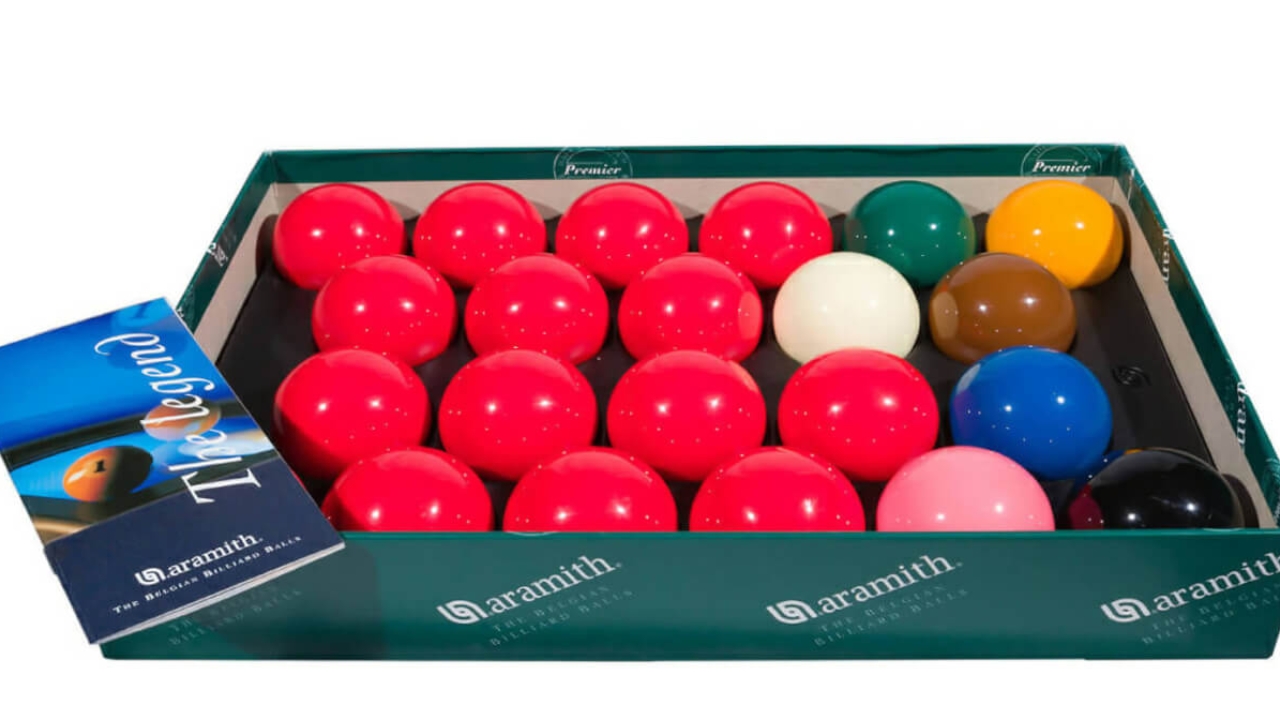Snooker balls are made of phenolic resin. This material ensures durability and consistency in gameplay.
Snooker, a popular cue sport, relies on high-quality equipment. The balls, specifically made from phenolic resin, offer excellent resistance to impact and wear.
This synthetic material ensures the balls maintain their shape and color over time, allowing players to benefit from consistent performance and reliability during matches.
The precise manufacturing process results in uniform weight and balance, which is crucial for professional play.
Phenolic resin also provides a smooth, polished surface, enhancing the ball’s roll on the table.
Investing in quality snooker balls can significantly improve the playing experience. Understanding their construction helps players appreciate the craftsmanship involved.
The Evolution of Snooker Balls
Snooker balls were originally made of ivory, which came from elephant tusks. However, this material was very expensive and hard to obtain. People wanted a cheaper and safer option, something that did not harm animals.
Modern snooker balls are made from phenolic resin, a type of plastic that is very durable and lasts. These balls are also perfectly round, making the game fair for everyone.
New technology helps make better snooker balls. Machines can now create balls with high precision. These machines use molds to form the balls, which are then polished to make them smooth.
Computers check each ball for flaws, ensuring that only perfect balls are used in games. This ensures that every ball is of high quality, so players can trust their equipment more now.
Materials Used in Modern Snooker Balls
Most snooker balls are made from phenolic resin. This material is very durable and resistant to impacts.
It ensures the balls last long and maintain their shape. Phenolic resin also provides a consistent bounce and roll, which is crucial for professional play.
Some snooker balls are made from polyester. Polyester is less expensive than phenolic resin. However, it is not as durable.
There are also ivory balls, but they are rare and expensive. Due to ethical concerns, ivory is not used often. Acrylic is another alternative, but it is also less common.
Why Phenolic Resin Dominates
Snooker balls are crafted from phenolic resin, ensuring durability and consistent performance. This material offers superior resistance to impact and wear.
Durability and Performance
Phenolic resin makes snooker balls very strong. These balls resist scratches and chips, helping them last for many years.
Professional players prefer these balls. They roll smoothly on the table. This material also keeps its color well.
Bright colors help players see the balls better. The resin is also heat-resistant and can handle the friction of hard shots.
Consistency Across Sets
All balls made from phenolic resin are the same, ensuring fair play in tournaments. Every ball in a set weighs the same and has the same diameter.
This consistency is crucial for the game. Players can predict how the balls move, helping them improve their skills.
Manufacturers can produce many balls with no differences, which is important for quality control.
The Manufacturing Process
Snooker balls start as a mix of resin and hardening agents. This mix is poured into molds, which give the balls their shape.
Each ball must be cured, which means heating it. Heating makes the balls hard and strong. Curing can take several hours.
After curing, the balls need polishing to make them smooth and shiny. Each ball is polished by hand, and workers use special machines with soft pads to polish them. Polished balls look bright and smooth.
Characteristics of High-quality Snooker Balls
High-quality snooker balls are perfect in weight and size. They are usually around 141 grams each, which ensures a balanced game. The diameter is typically 52.5mm.
Consistency in size is crucial for fair play. Balls that differ slightly can affect the game’s outcome. Professional players need this precision. It guarantees a smooth and predictable game.
Snooker balls must be bright and uniform in color. Each ball’s color should be distinct, helping players easily identify them.
Colors should not fade over time. Bright colors enhance visibility on the table, and uniform colors also make the game visually appealing.
Consistent coloring indicates high-quality materials. This attention to detail improves the playing experience.
Environmental Impact and Sustainability
Snooker balls have been made from plastics and other non-biodegradable materials, which can harm the environment.
Eco-friendly alternatives are being explored. Some companies are using plant-based resins, which are better for the planet. They break down faster and are less harmful.
Another option is recycled materials. Using recycled plastic reduces waste and saves resources. These alternatives help protect the Earth.
Old snooker balls can be recycled. Recycling helps reduce waste and save resources. Some companies take old balls and make new ones. This process uses less energy and is better for the environment.
Recycled snooker balls work just as well. They help keep the planet clean, and recycling is a smart choice for everyone.
The Role of Snooker Balls in the Game’s Popularity
Snooker balls are very important for the game. They affect how players hit the balls. Good snooker balls roll smoothly on the table, helping players make better shots.
Players prefer balls that are round and balanced, making the game more fun and fair. Snooker balls look shiny and colorful, helping players see them easily.
The main colors are red, yellow, green, brown, blue, pink, and black. The balls also feel nice to touch, adding to the game’s appeal. People love watching a game with beautiful balls.
Choosing the Right Snooker Balls
The first factor to consider is the material. Most snooker balls are made of phenolic resin, which offers durability and a consistent bounce. Size is also crucial.
Standard snooker balls are 52.5mm in diameter. Always check the weight—a standard ball weighs 142 grams. The color must not fade easily.
For amateurs, choose affordable sets. These sets are good for practice. Professionals should pick high-quality balls.
These balls offer better performance. Professionals often prefer brands like Aramith, which provide consistent quality. Always have a spare set.












